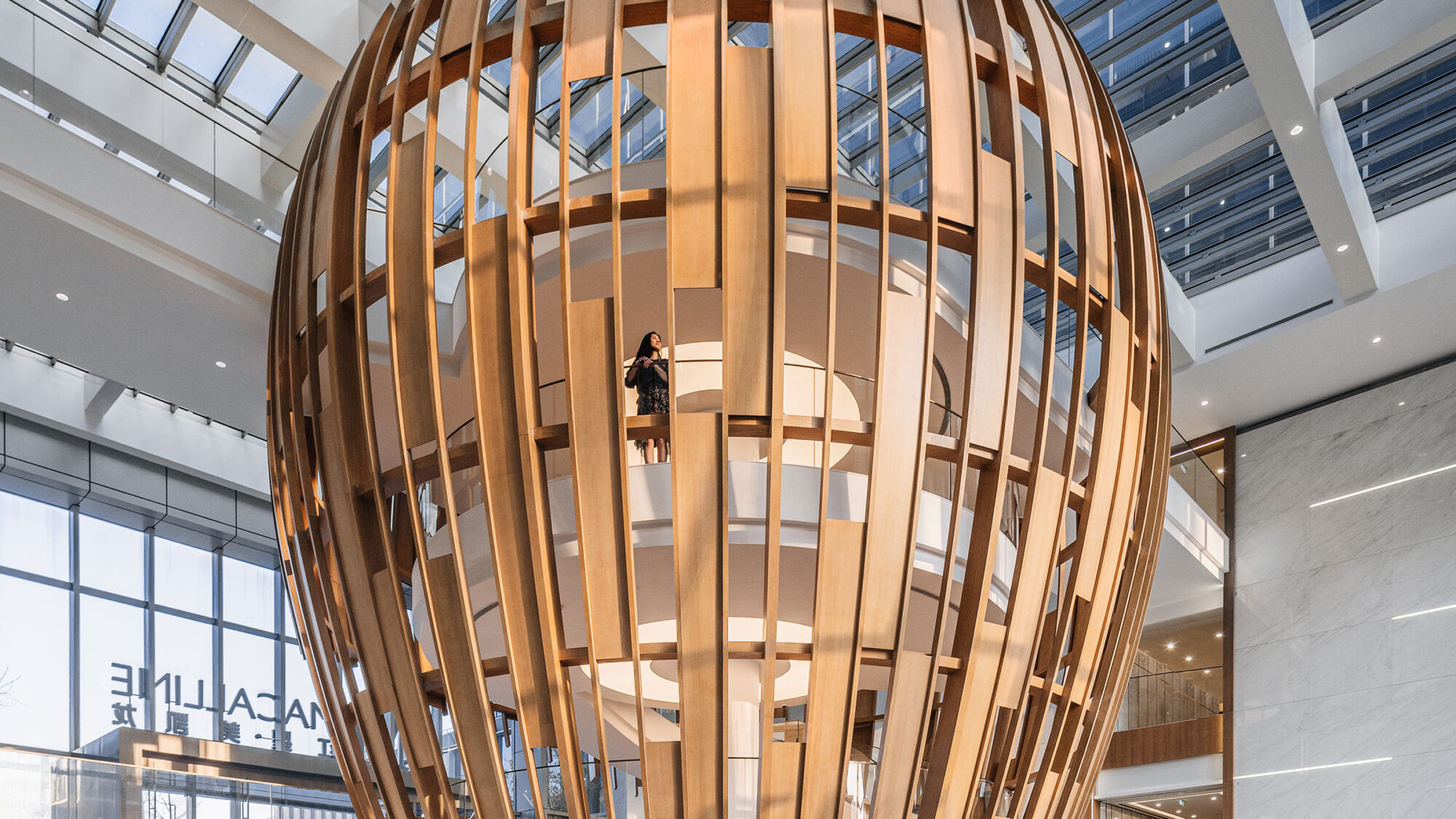

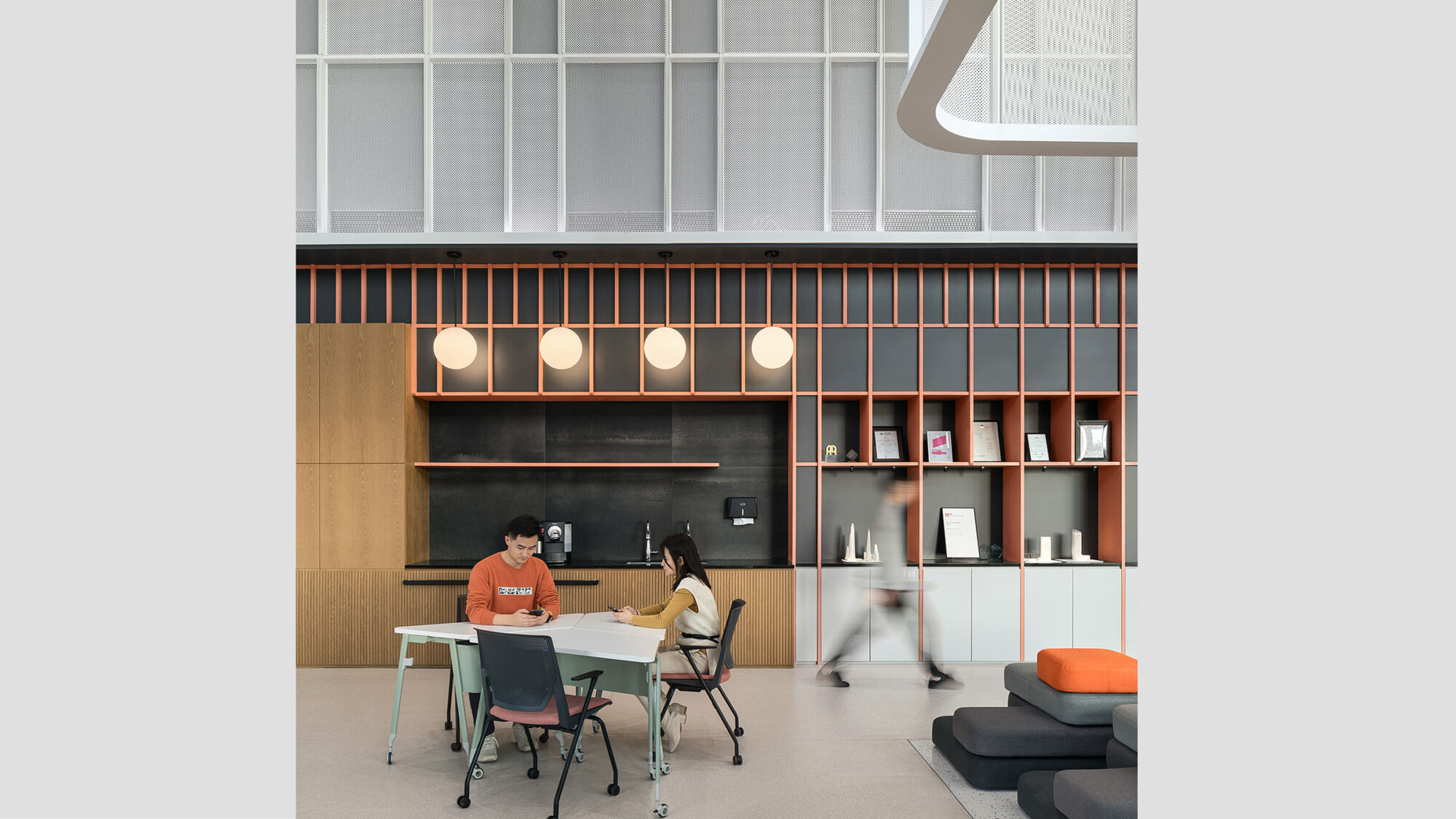
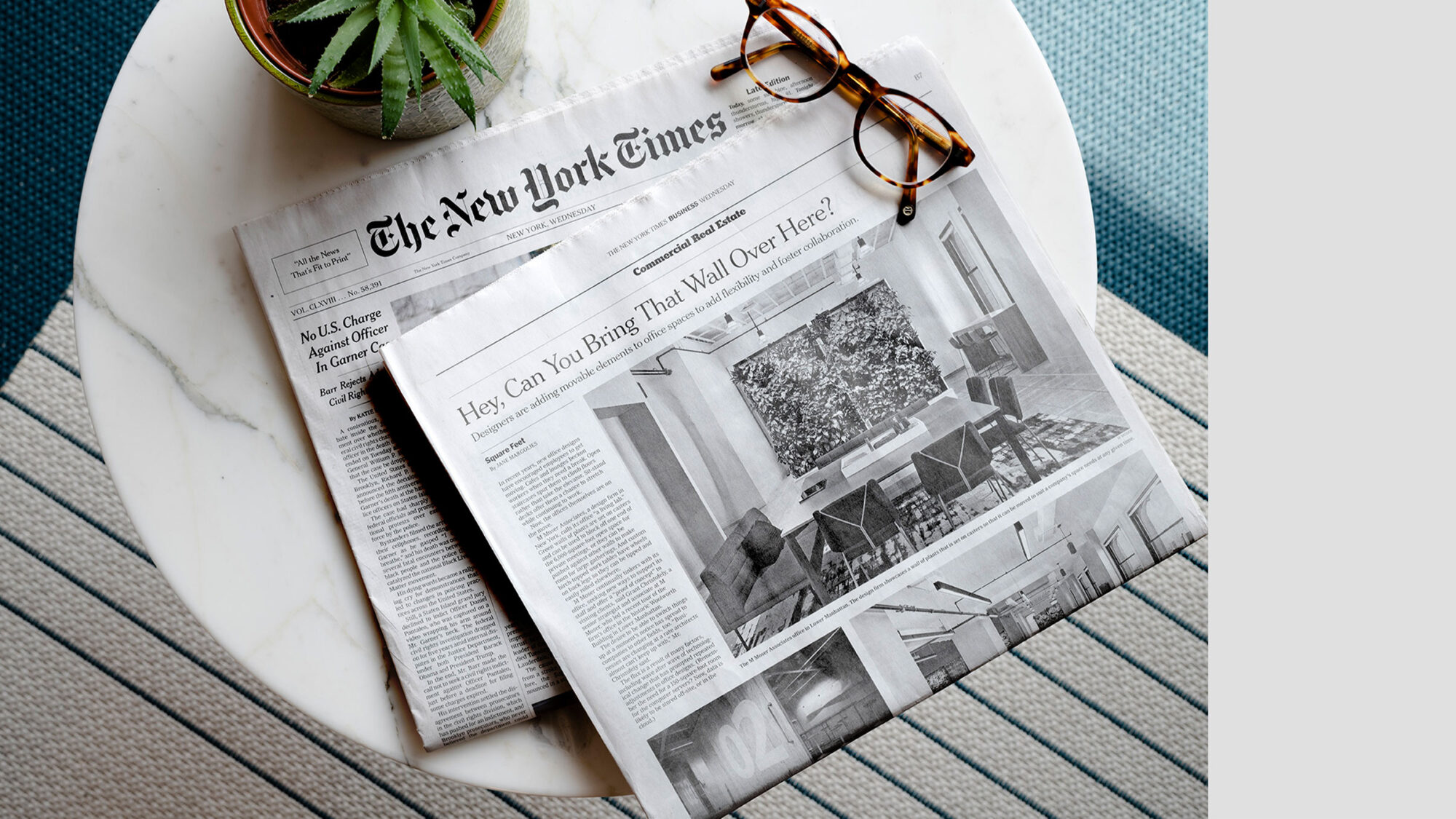
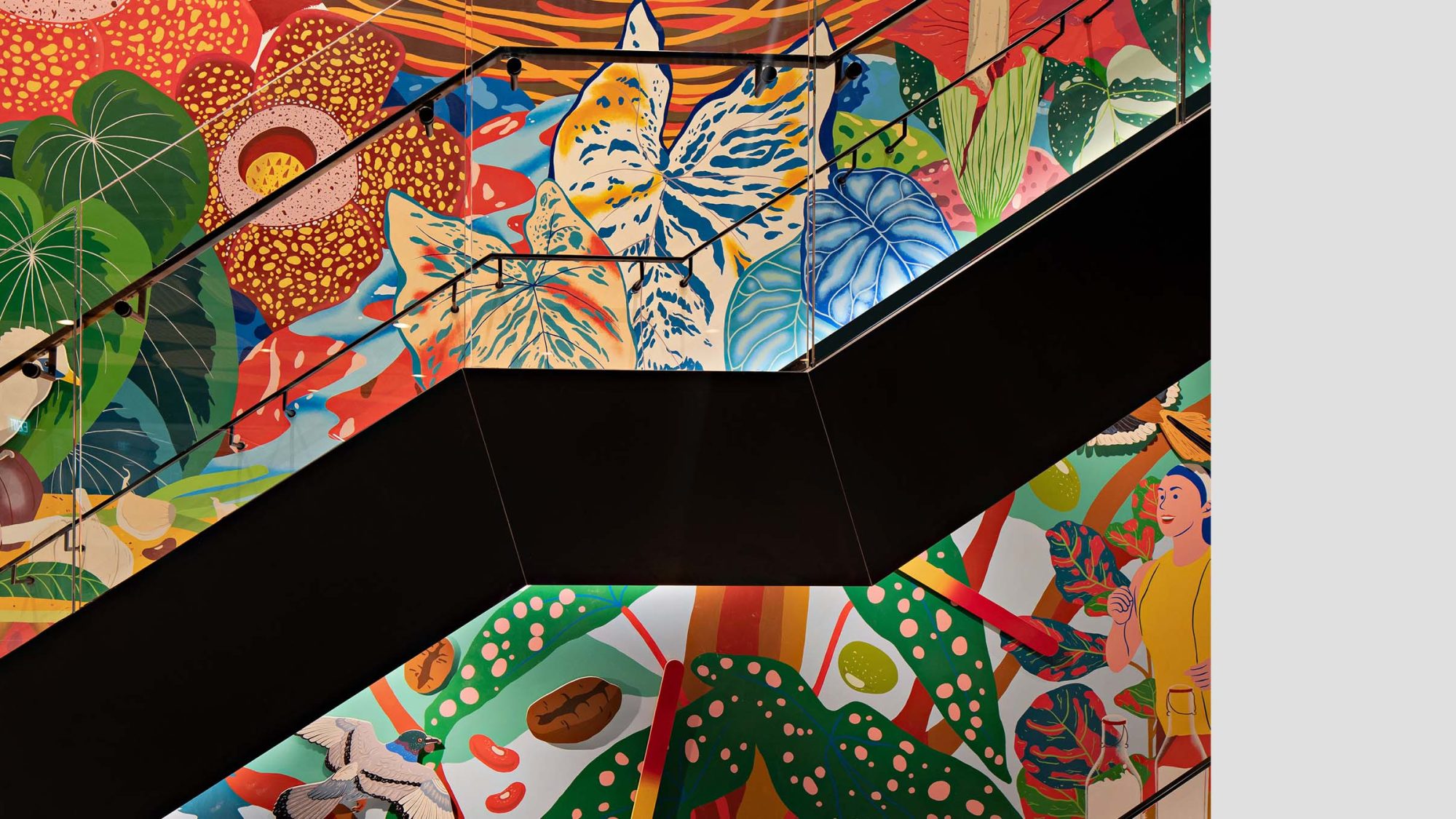
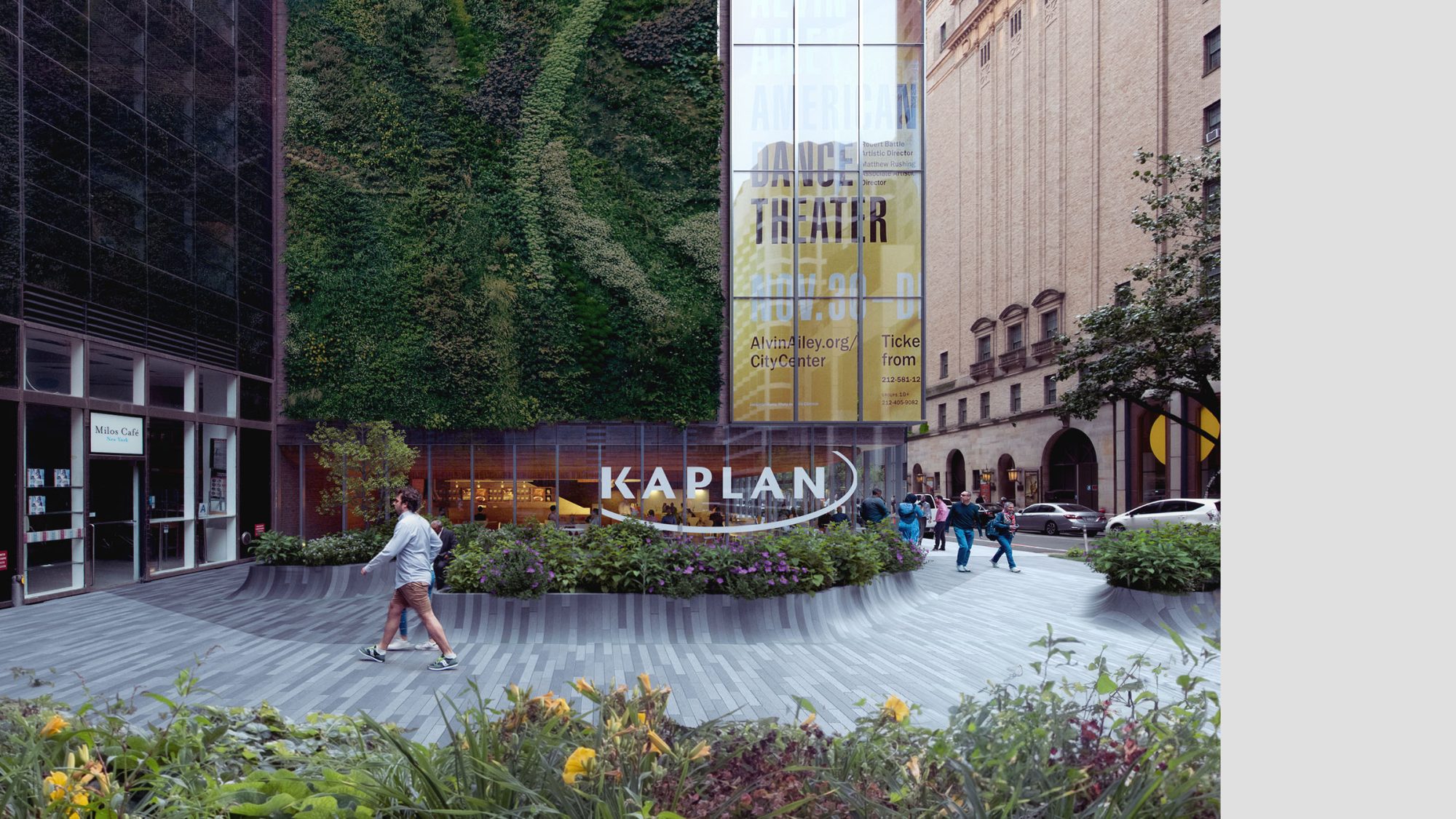
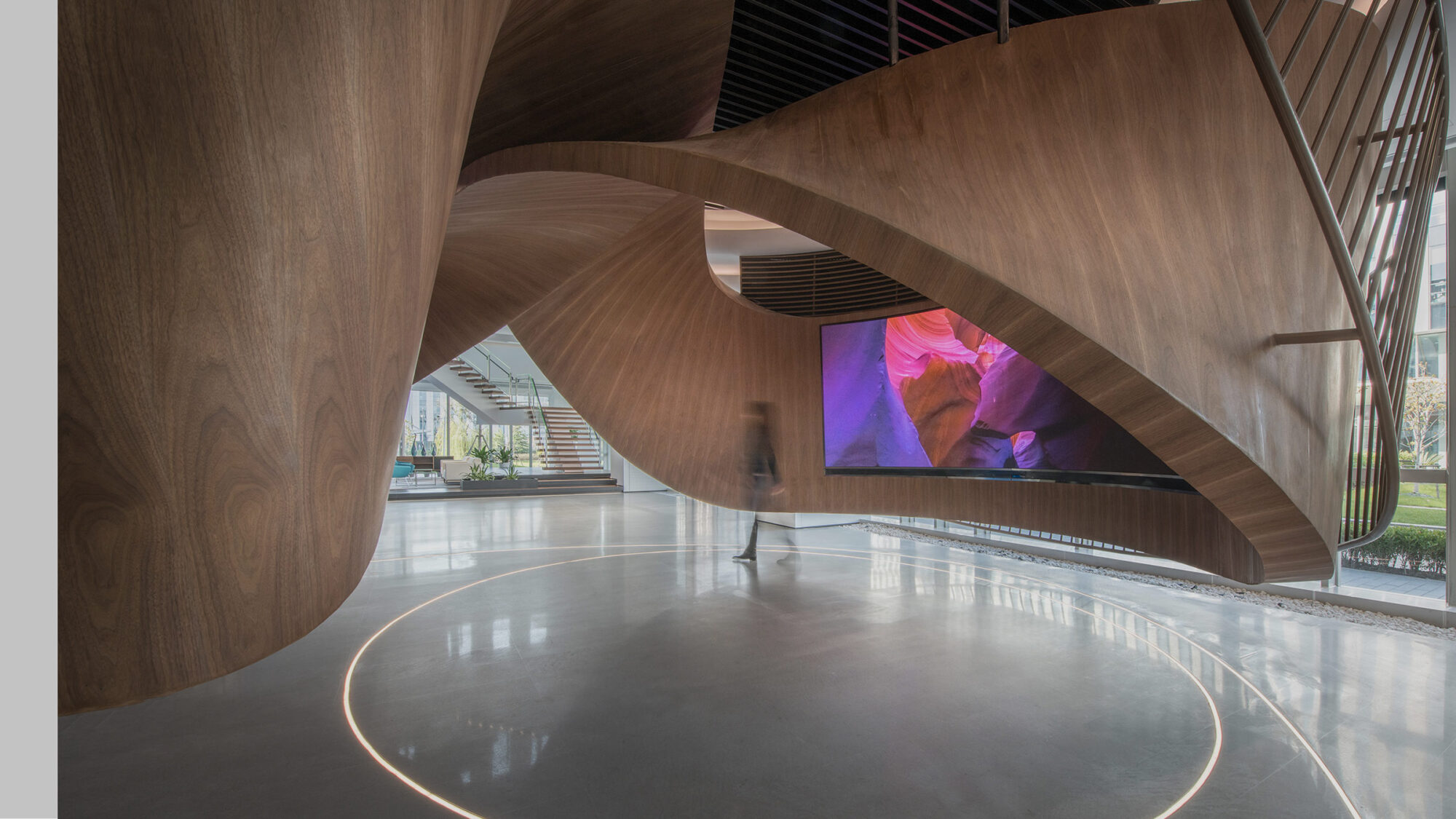
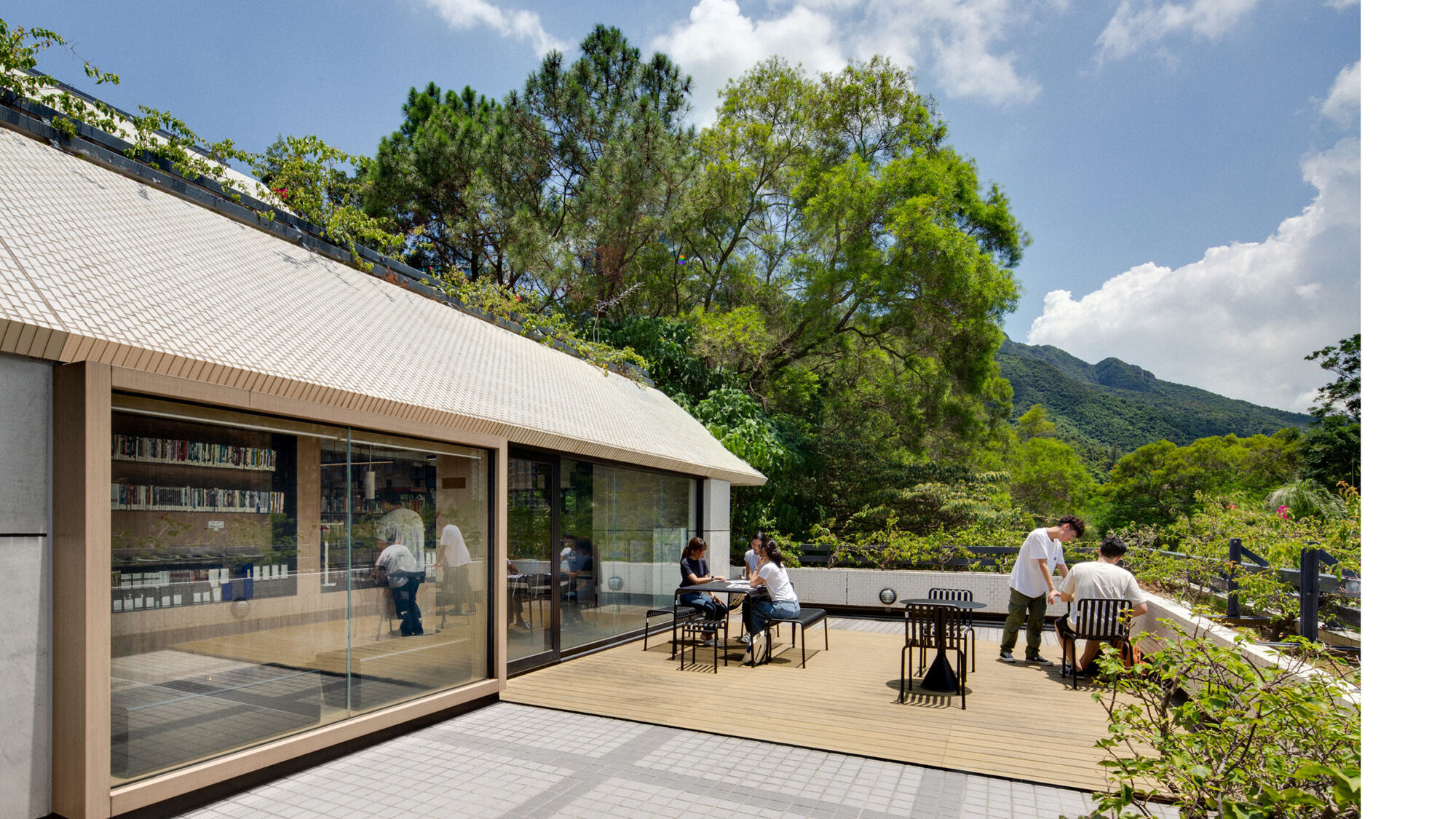
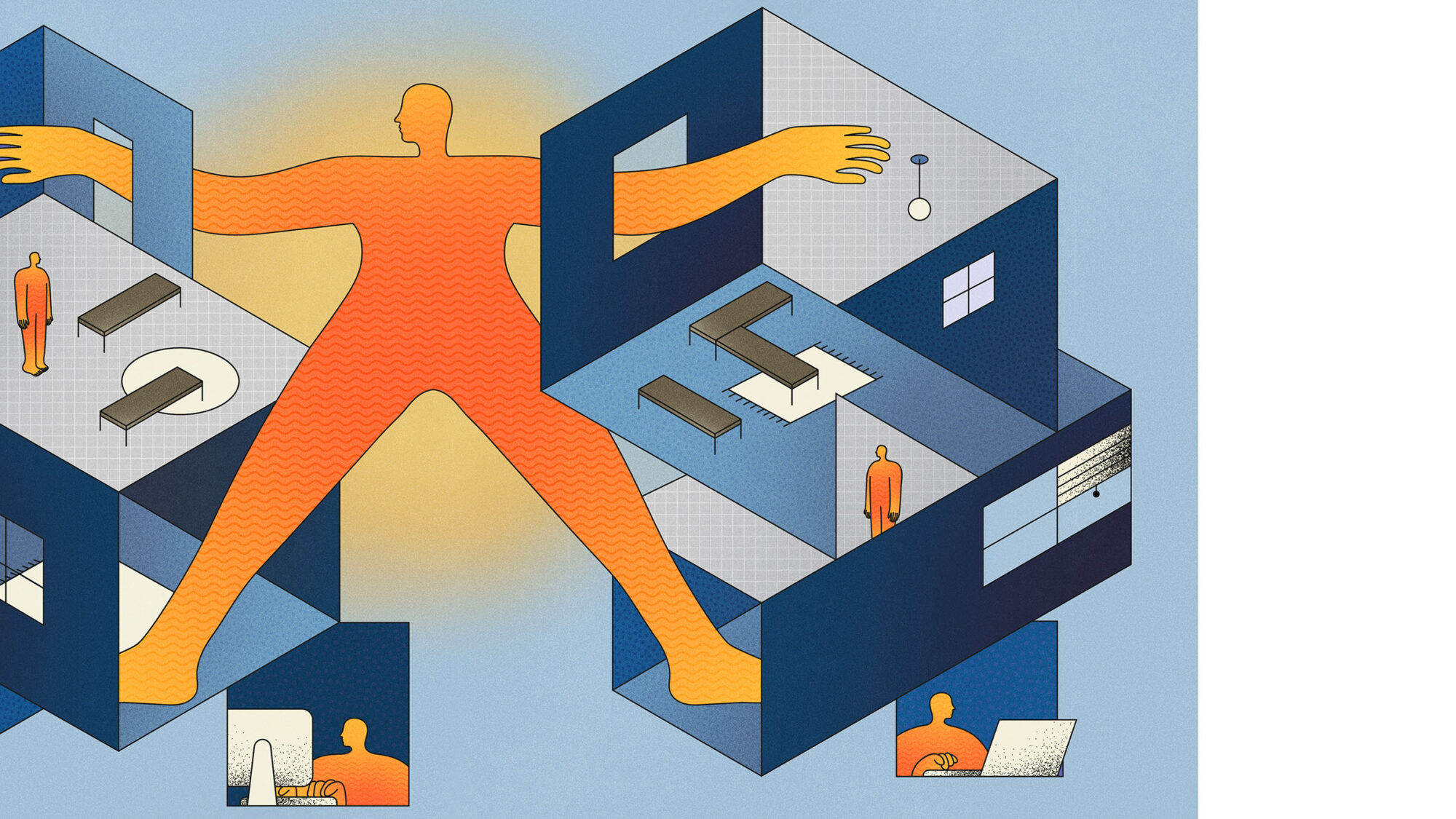
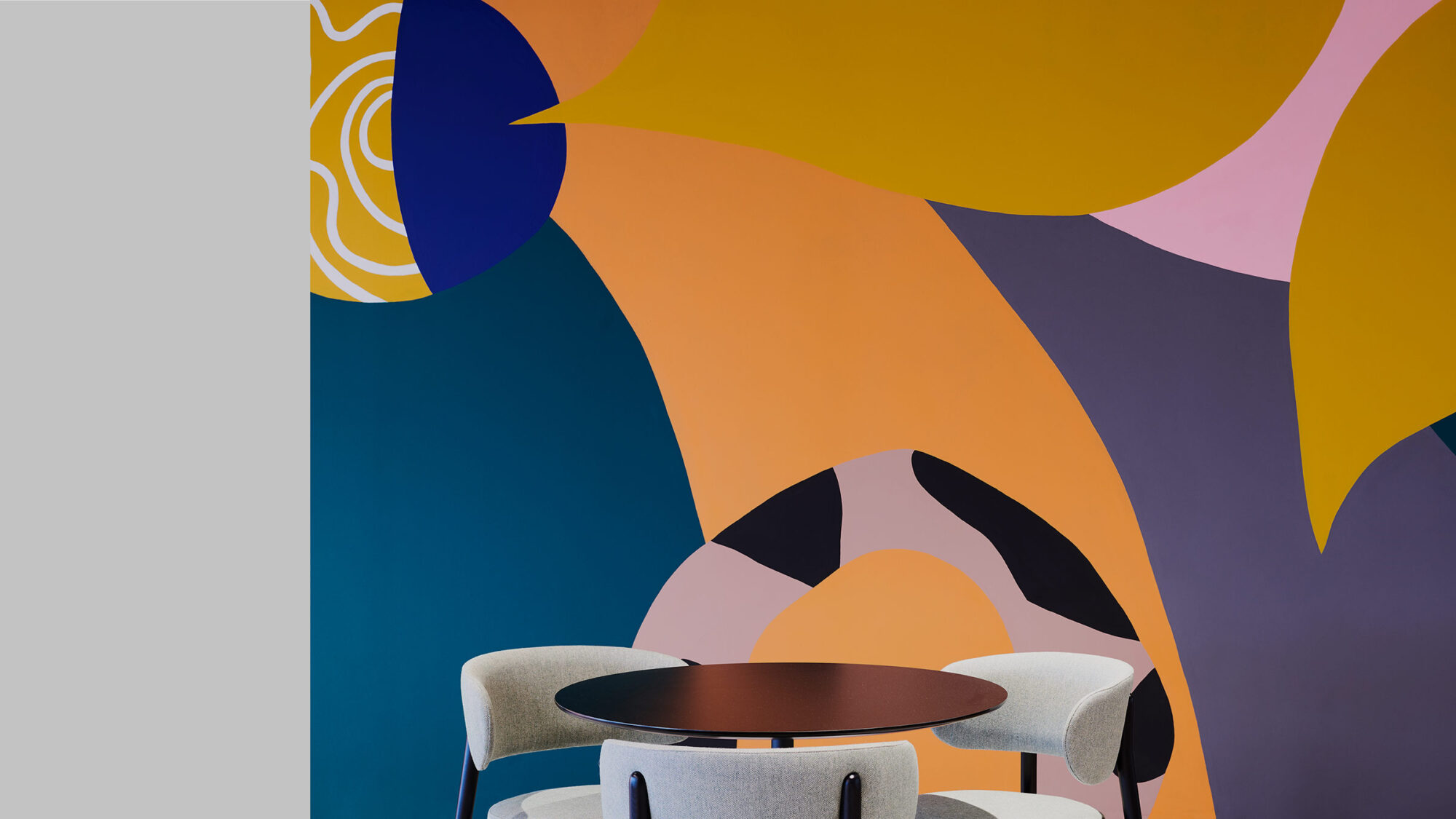
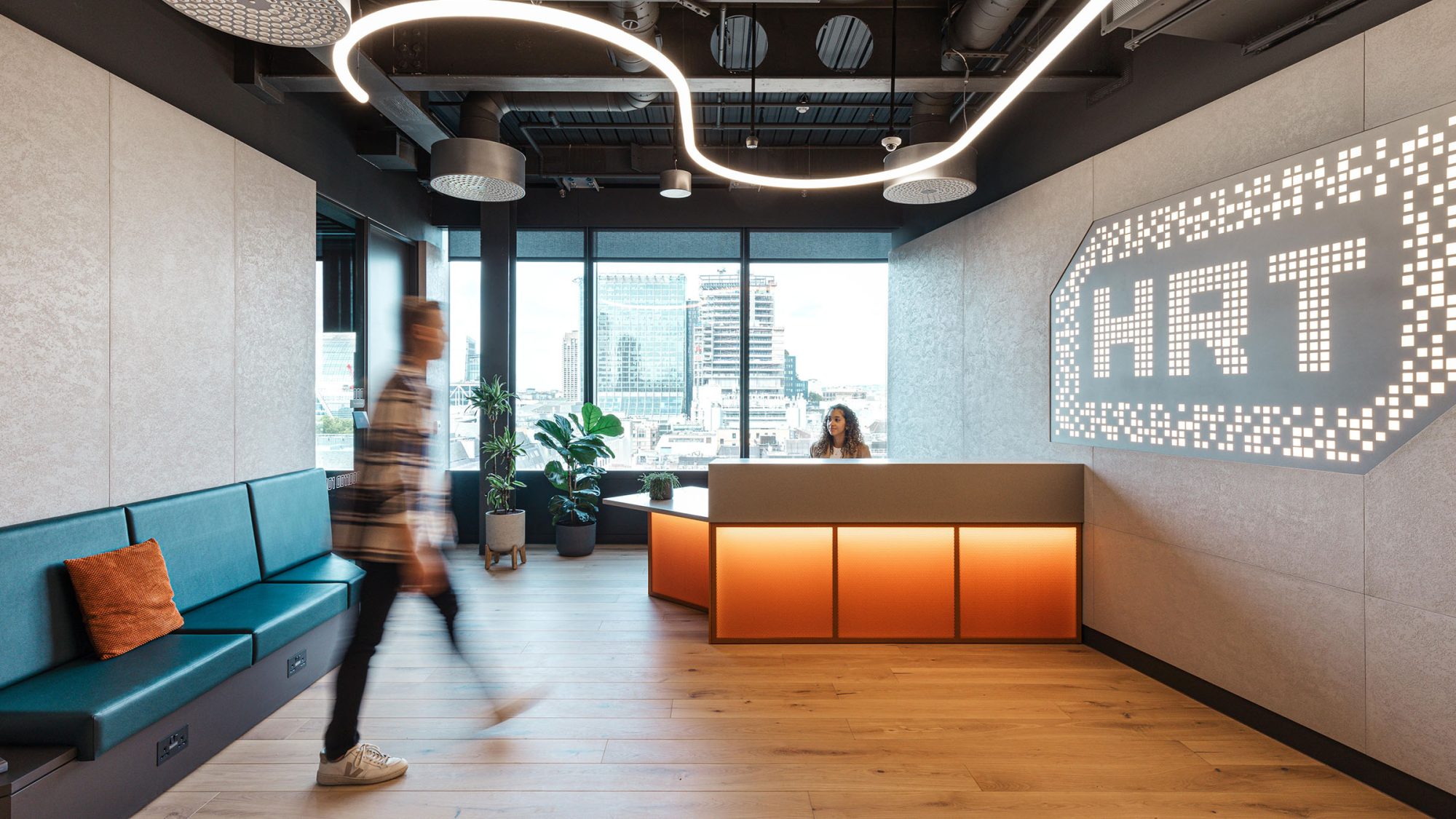
Hudson River Trading (HRT) is a quantitative trading firm working across more than 200 markets worldwide. Together, its 900+ staff across six countries research and develop automated trading algorithms using advanced mathematical techniques. So, for HRT’s office design in London, we created a workplace that focuses on supporting collaborative work.
In addition, the project begins a new relationship with M Moser Europe, having previously worked together in Singapore.
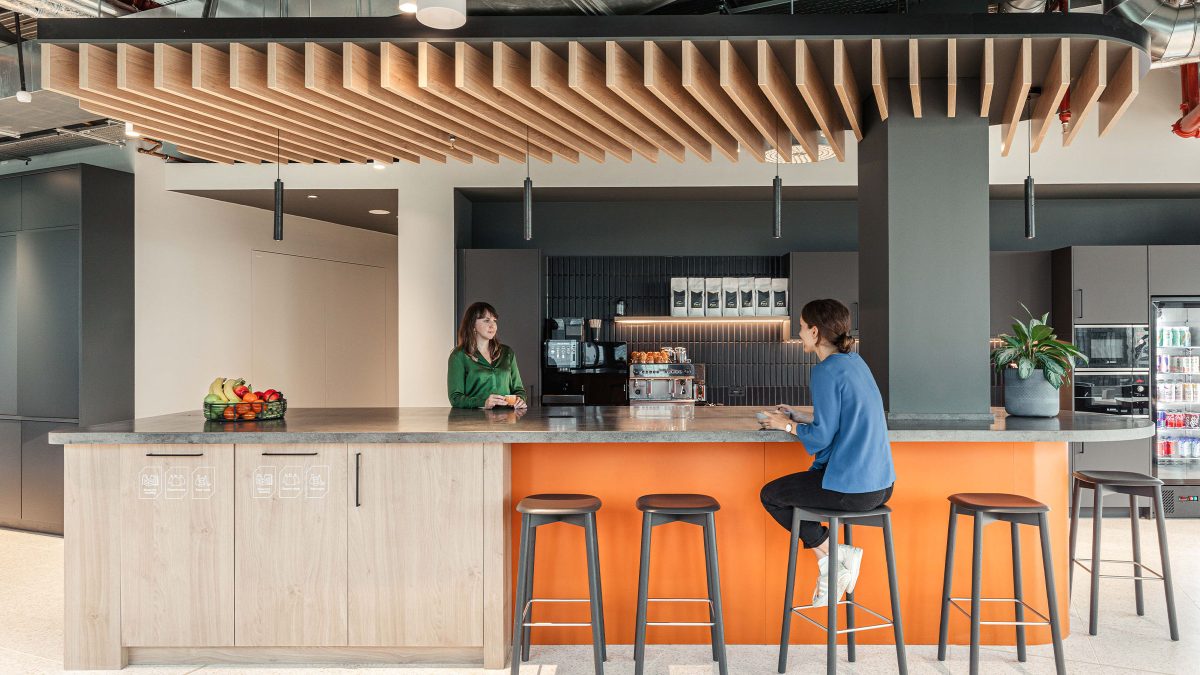
HRT is proud of its workplace culture. Therefore, our goal was to create an office space that allows its people to come together, solve problems and share their best ideas. It was also crucial to balance the individual desk environments with meeting spaces for collaborative working.
Furthermore, the workspace needed to have its own identity. The brief for HRT’s office in London was to create a design language consistent with its other global offices, while responding to the building and the local area.
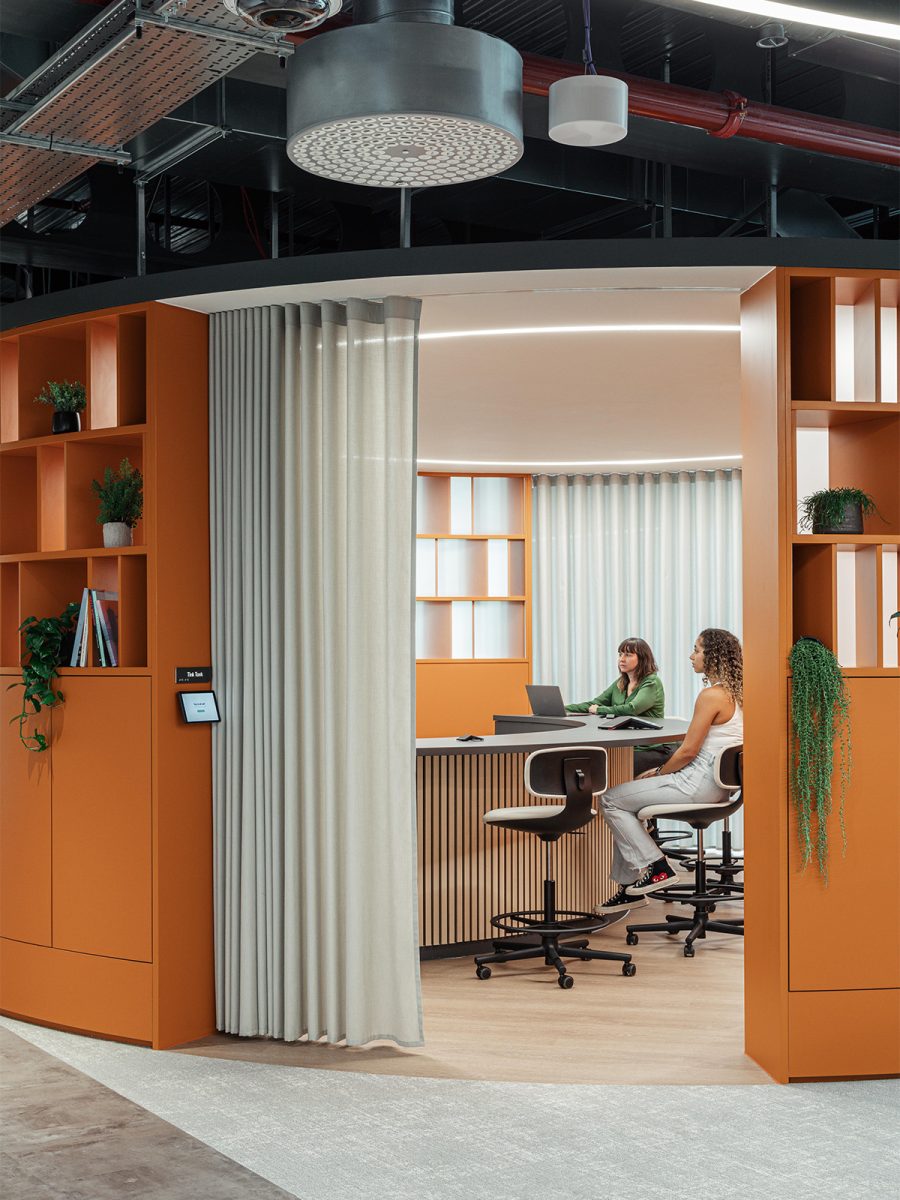
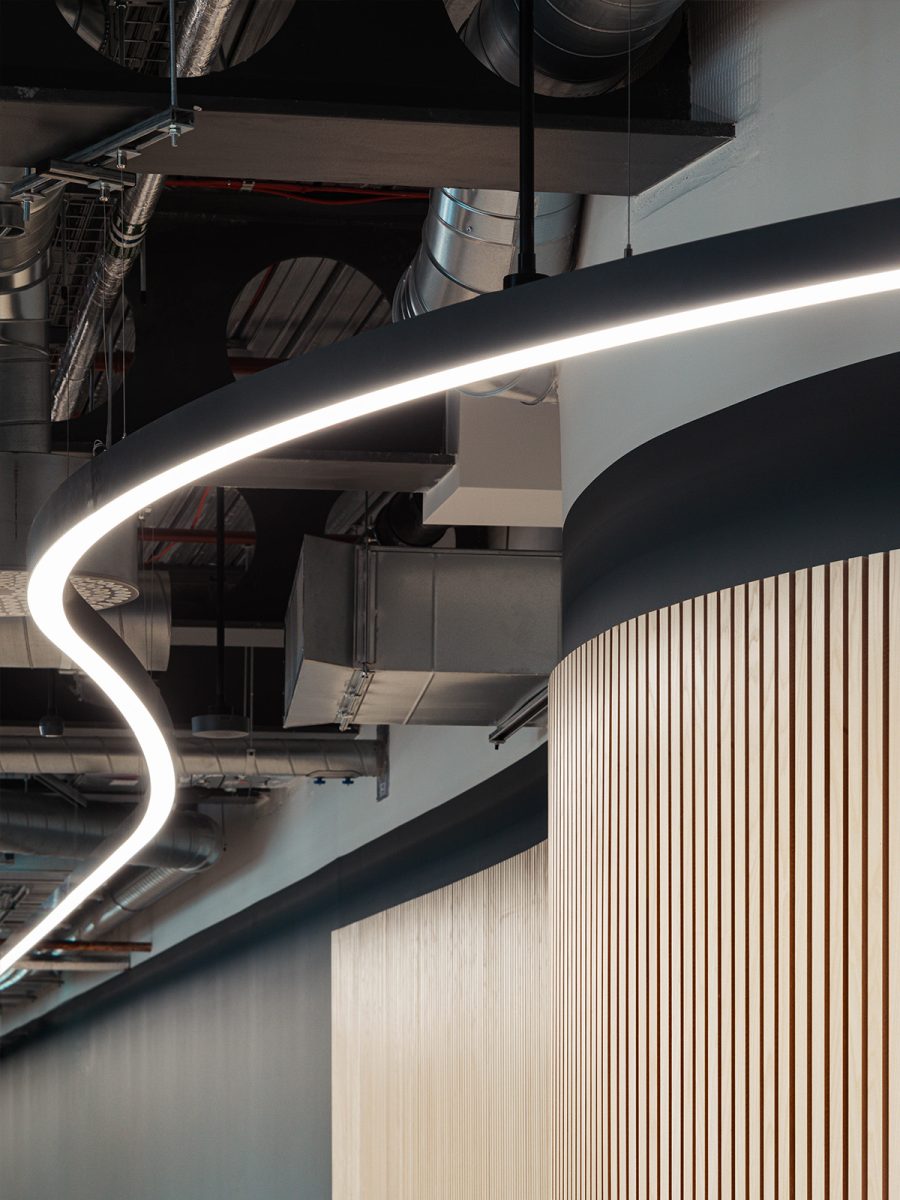
Our office design and build solution reimagines the traditional trading floor. Specifically, the ‘Tink Tank’, a dedicated setting for problem-solving and ideating together, outside the banks of desks.
HRT’s developers like to constantly iterate on its trading algorithms. With this in mind, moveable furniture lets people physically edit the space by remodeling it to suit the different needs of those using it.
Collaboration can be distracting within an open plan office. So, we divided the Tink Tank from the main workspace by using curved walls and semi-transparent curtains to avoid causing a disturbance to those working nearby.
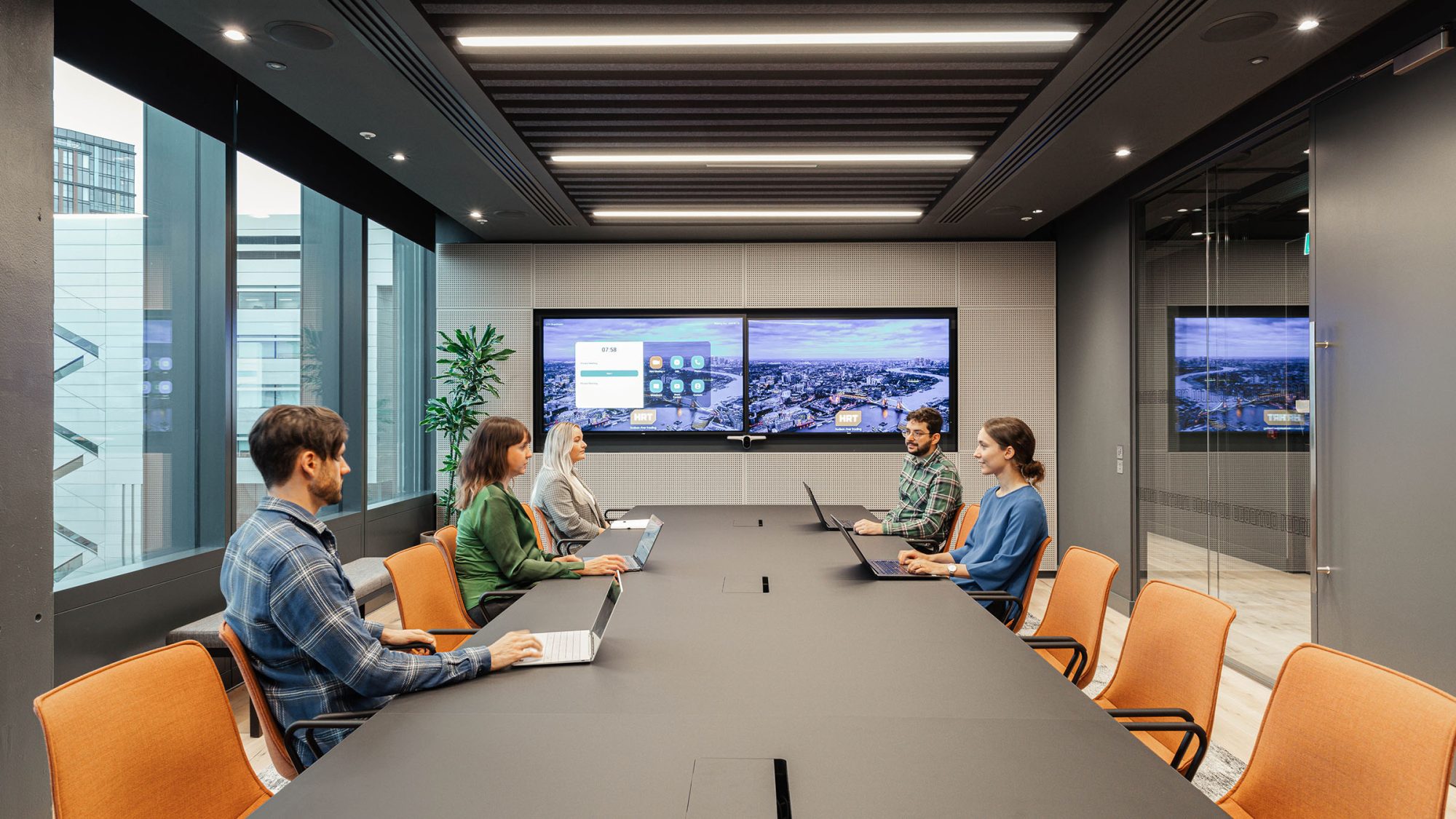
Our new office space supports our collaborative work and culture. Togetherness is a core value at HRT and this space helps us achieve that.
Emma Black, Design Project Manager (Real Estate), Hudson River Trading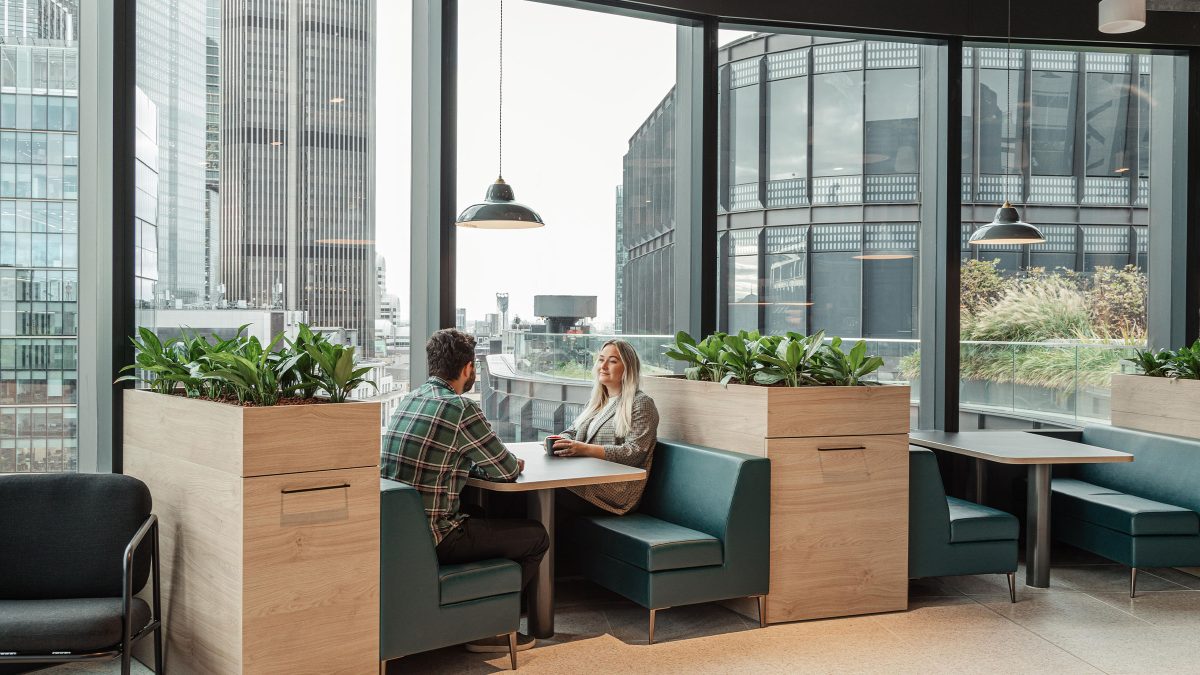
Hudson River Trading’s culture is focused on people who love what they do. So, for its office design in London, we kept branding subtle and focused on designing for people. Bespoke algorithm-inspired artwork creates brand recognition as you enter into reception. Throughout the office layout, we used the angles of HRT’s logo to juxtapose the curves of the building.
Maintaining the City views and sight lines to landmarks, such as St Paul’s Cathedral, helps to localise the design. The space has a fluidity to it, and statement lighting overhead helps people to flow from desk to destination.
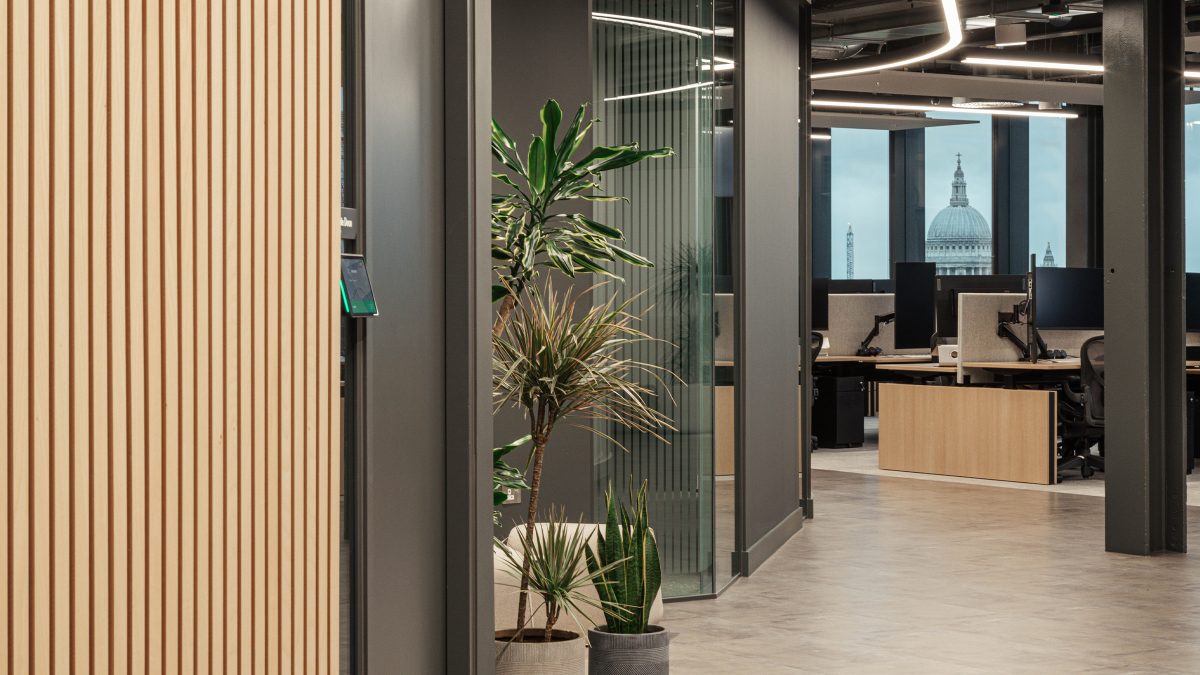
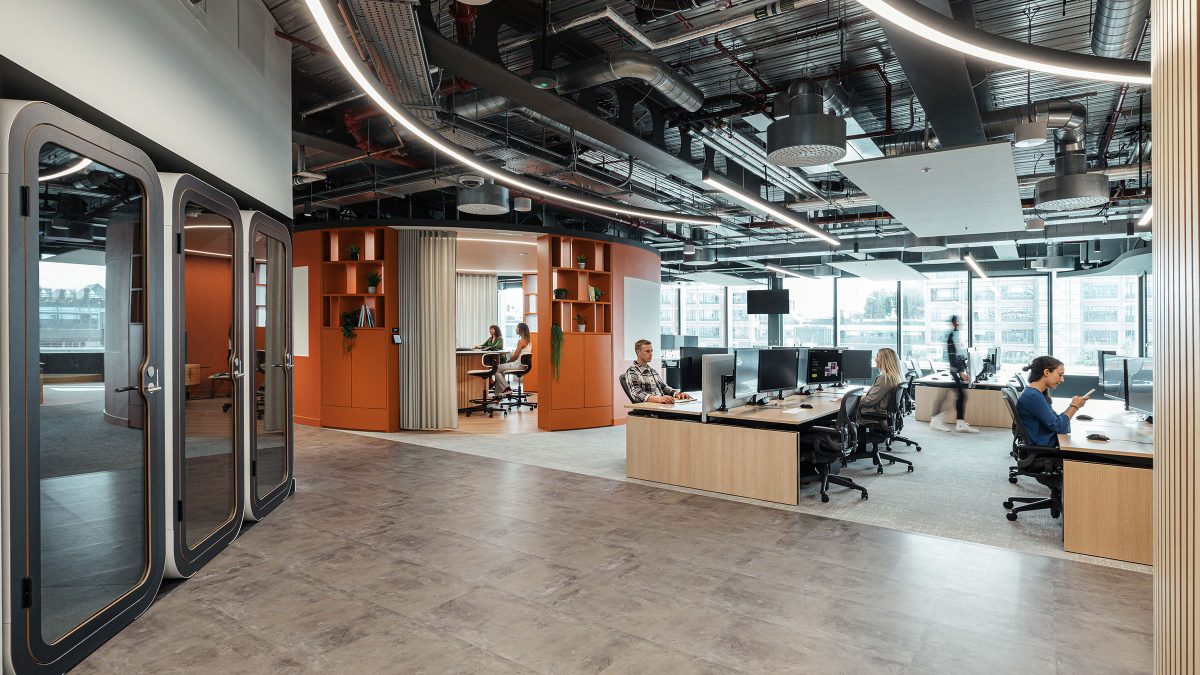
We know coders prefer quiet spaces to work. Therefore, the social café area is designed away from the open plan. The space offers opportunities to connect. For instance, staff can unwind on the pool table or watch sports in the lounge area after work.
Furniture solutions within this space provide enough seating to come together to enjoy daily chef-prepared breakfasts and lunches. In addition, the multi-use furniture allows staff and visiting guests to touch down and work.
The community space doubles up for events, too. We designed the sizeable bespoke island with direct access to a private terrace. The island is a focal point for hosting events, naturally drawing people to it. With good WiFi and a great sound system, the private terrace is an extension of the interior for special occasions.
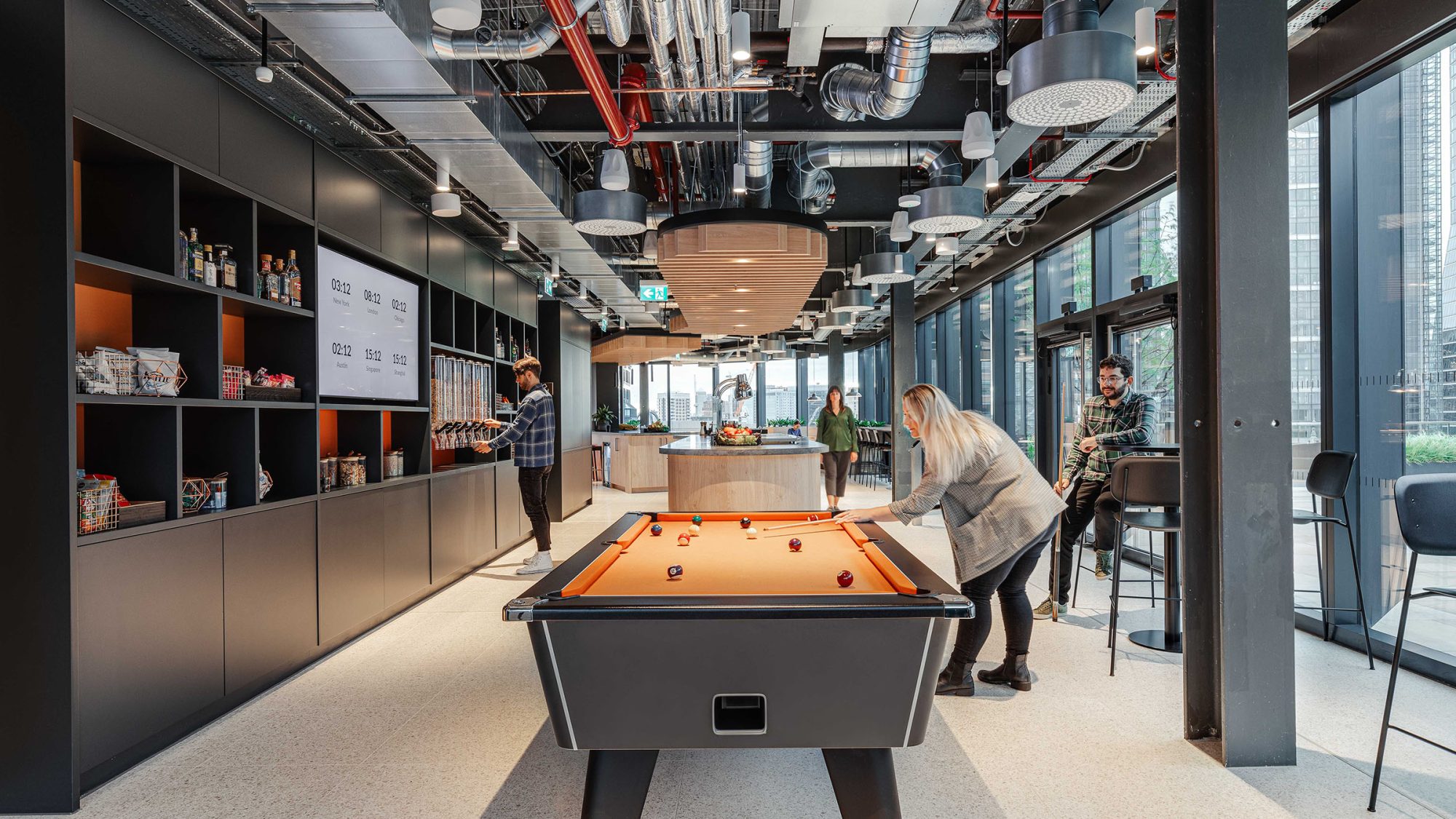
The office sits within the BREEAM ‘Outstanding’ building, 100 Liverpool Street. As a net zero carbon development, we had to ensure our supply chain met the specific guidelines for working in the building. Such as FORS Silver-accreditation registered vehicle deliveries.
We designed all MEP engineering services from scratch, safeguarding the workplace’s future performance. For example, a sub-circuit electrical monitoring system monitors the energy usage of different equipment – such as the comms room and mechanical systems. From this data, HRT can evaluate active energy values for each sensor, visualise energy consumptions of Mains, Groups and Branches, and even compare between systems. All in all, leading to improved energy consumption.
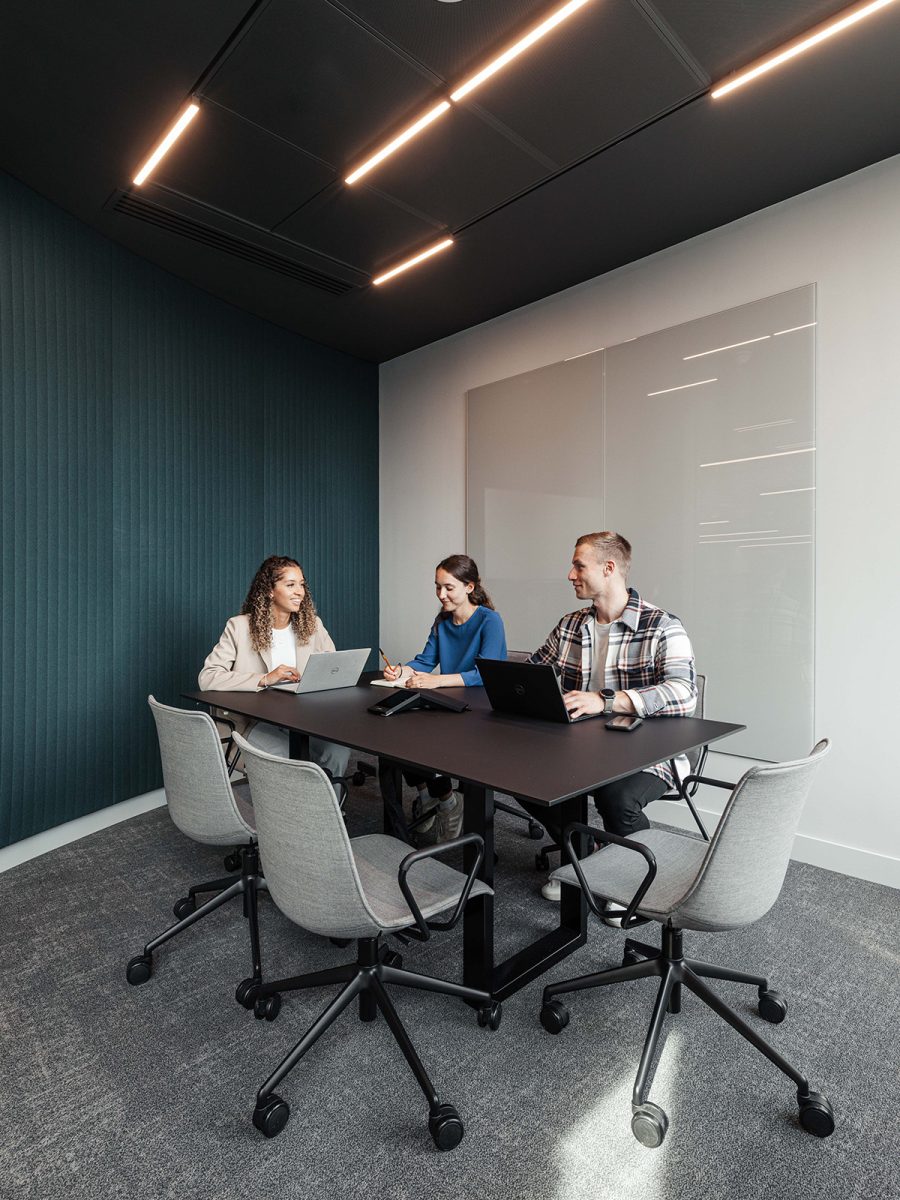
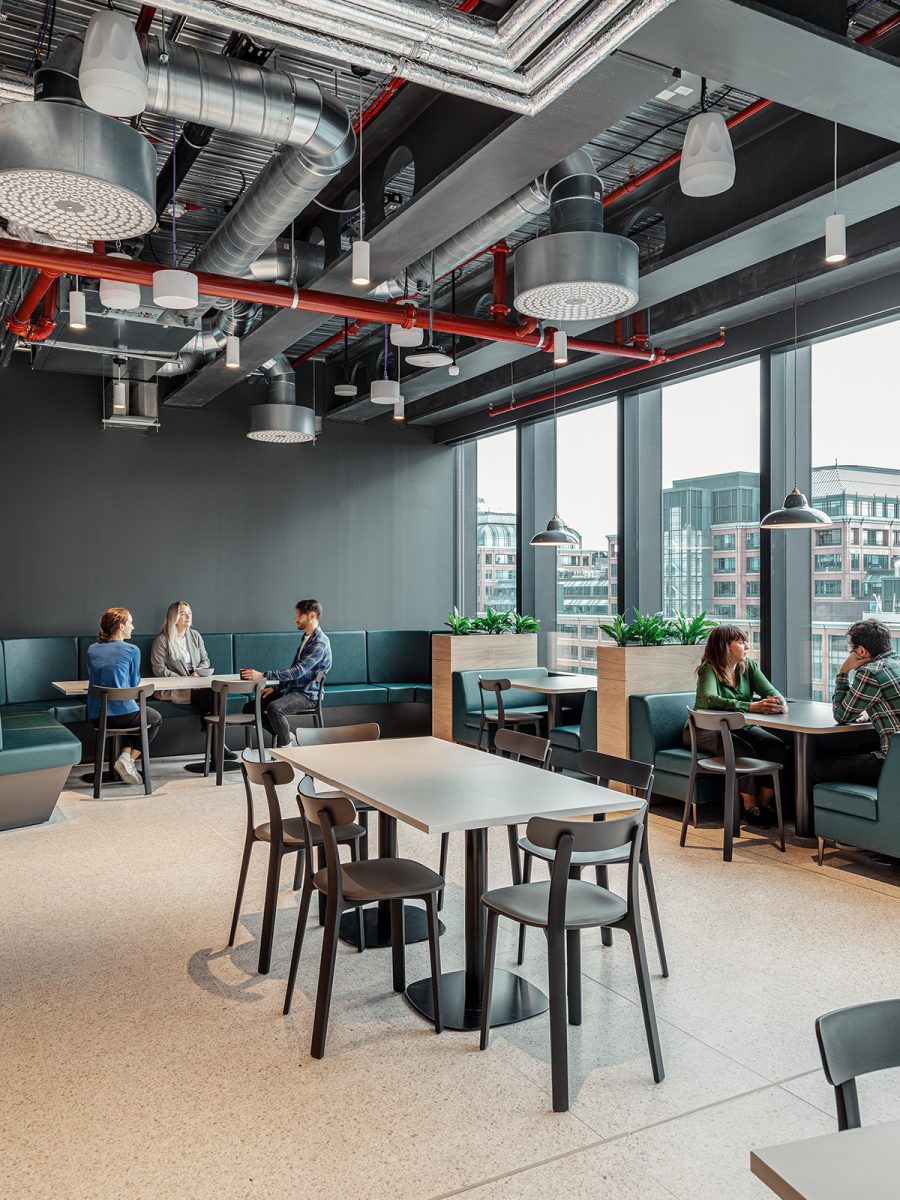
Many of the London project’s stakeholders work in HRT’s New York City HQ. So, technology was a crucial part of ensuring efficiency during the construction phase. For example, we used virtual space capture to share the build progress with the client. Scans were taken and communicated every couple of days. As a result, the client didn’t need to travel during the build, saving time and emissions.
Additionally, as part of the London team’s roadmap to net zero, the site set-up was entirely paperless. For instance, we can update drawings and share them with many people without the need to recycle the old and reprint the new ones. Digitising this work also increases business efficiency, with instant access to the latest documents on-site.
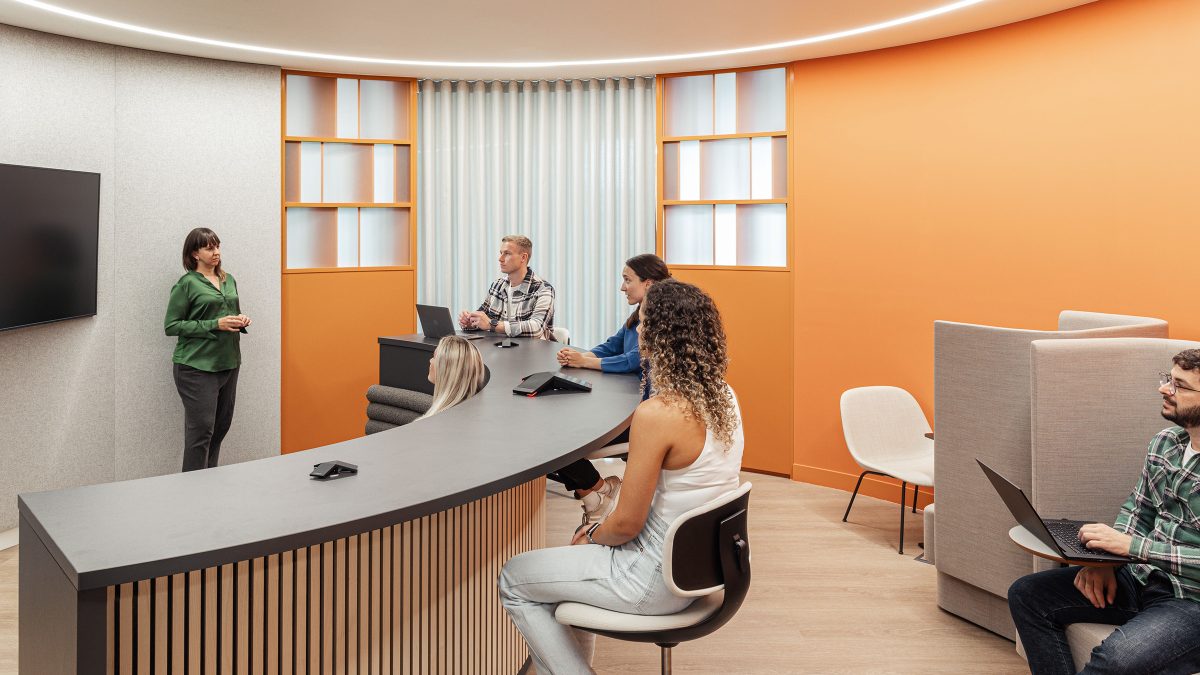
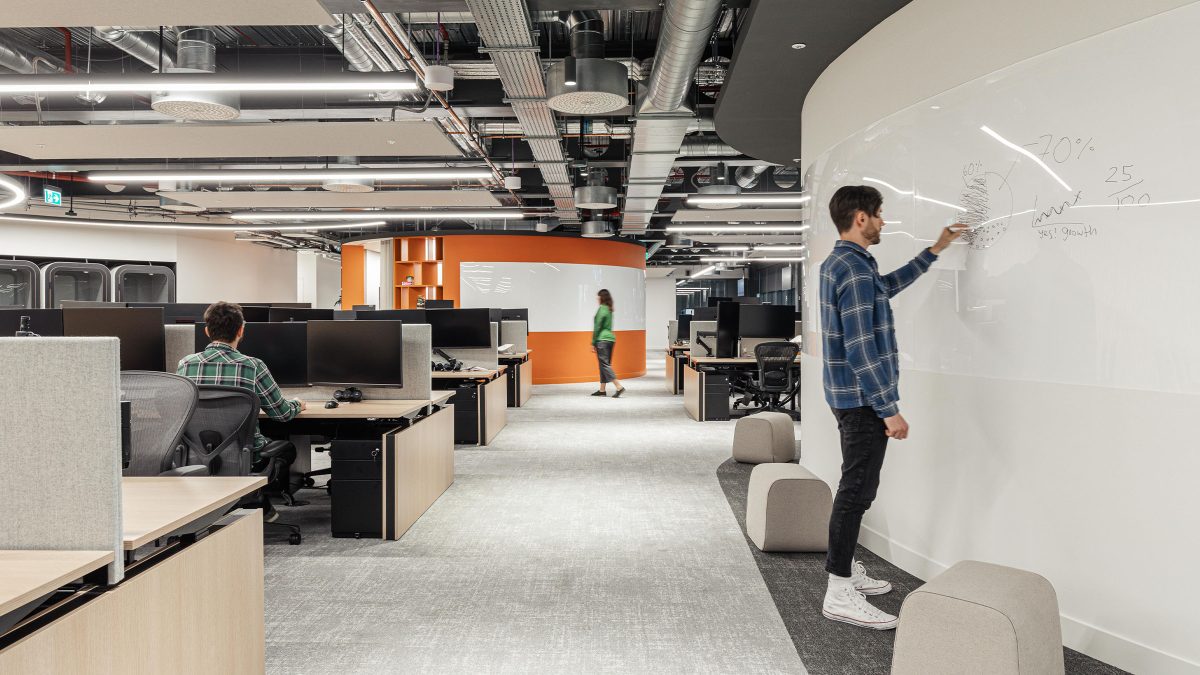
2023Shaw Contract Design Awards - Best of UK & Continental Europe
Completed
2022
London
20,400 sq ft
Chris Wharton